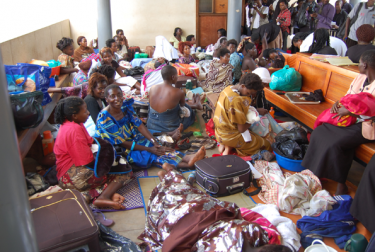Medical care is supposed to be free in Uganda. However, there has been a consistent shortage of medicine and health workers in the national health centres.
A video produced by Results for Development, an international non-profit organisation whose mission is to unlock solutions to tough development challenges, was released online recently to encourage Ugandans to break their silence and take control of their health rights.
Introducing the video, Oscar Abello writes:
Uganda has made great strides in the past few years building up the “hardware” of its public distribution system for medicines – central warehouses and staffed distribution points – but the “software” isn’t quite right. Many health centers run out of medicines in the 2-3 months between deliveries, meanwhile central warehouses are chock-full of supplies.
Medicine supply chain problems aren’t news to Uganda’s poor, many of them in remote rural villages, but few channels exist to bring that information to the public officials who are in position to do something about it.
In the video, Dennis Kibira, the medicines advisor at HEPS Uganda, a health consumer organization that helps increase access to essential medicine in Uganda says:
I want to see a country where people do not have to die because they have failed to receive the care that they deserve.
In 2006, three ministers lost their posts after it was reported that they were involved in embezzlement of funds from the health sector. Their cases are still pending in court.

Patients on the floor of Mulago Hospital, the National Referral Hospital. Photo courtesy of williamkituuka.blogspot.com
Rosette Mutambi, the founder and executive director of HEPS Uganda says in the video that health care is supposed to be free in Uganda, but it is not the case at the moment. She adds that the health centres are operating over-capacity and that health workers are over-worked.
Uganda also has experiences power outages or load-shedding, which affects health centres that have no standby generators since some medicine needs refrigeration.
According to Moses Kamabare, the general manager of National Medical Stores, the organisation responsible for the storage and delivery of medicine to health centres, they makes one delivery every two months to all districts. But a health worker on the ground says that the heath centers actually receive medicine once every three months.
Medical Stores iin Uganda are always full, but there are no drugs in the health centers. Some people have to walk more than 10km to these health centers only to find that medicine is not there. This experience is heartbreaking for many people and discourages them from coming back to the centres and seeking medical care.
A lot needs to be done to improve health care in Uganda: faster, more frequent service delivery, an increase in funding, more health centers, higher salaries for health workers, and procurement of equipment for centres.
There is also a challenge of shortage of doctors, some of whom allegedly steal medicine for their private clinics.
But the big question still stands, will this video encourage Ugandans to finally break the silence?






